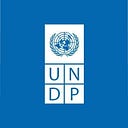For Roma, without papers it’s hard to exist
by Jodi Hilton and Karen Cirillo
In a shack at the end of a dirt road on the outskirts of Belgrade, 18-year-old Fljurija Katunari dotes on her two month-old daughter, Elvira. She breastfeeds and uses baby wipes to clean the baby from dust that sneaks in through the door.
The shack is a single room with a mattress on the floor, a stool and piles of clothes. A worn family photo and teddy bear hang on the wall. There’s no kitchen or toilet, no electricity, water or heat. A battery-powered lamp provides dim light.
Fljurija was born in Kosovo* to Roma parents but raised in an orphanage in Serbia. Her common-law husband, Ali Kokorri, 21, was born in Germany, the son of Kosovo Roma immigrants. Without legal residency or identity cards, they can’t officially marry, work or apply for social assistance. As a result, they can’t get a birth certificate for Elvira, even though she was born in a Belgrade hospital.
The family are stuck in a cycle of poverty, due in large part to their exclusion from the systems tasked with assisting them.
Roma communities are typically among the region’s poorest, lacking adequate housing and living conditions, formal employment, and access to quality education and healthcare, according to UNDP’s Regional Roma study.
Formal employment is often a precondition to be eligible for some forms of social protection. Many Roma are engaged only in informal labor, like gathering trash or selling used clothes.
In addition, many lack necessary identity documentation, but can’t obtain them without legal addresses.
Sometimes Ali finds work as a day labourer, where he takes home the equivalent of 10 euros for a full day’s work, barely enough to cover food and diapers. A farmer brings them bottles of water and allows them to collect firewood from his land. Occasionally, Ali helps as a farmhand.
THE JOURNEY TO HERE
Fljrurija was raised in a Serbian orphanage, where her parents left her after immigrating from Kosovo. The orphans were provided with food, health care and education but she is haunted by the violence she experienced from her caretakers.
“Nobody cared about us,” she says. “The teachers didn’t care. They would beat us.”
She tried many times to escape, and finally succeeded at 16. She was arranged to marry a distant relative, but preferred the relative’s brother, Ali.
The curly-haired young man had recently returned from Germany, where he attended school until the ninth grade.
“In Germany, we had a normal two-story house and my father was a maintenance worker at pool,” explains Ali. He still has his German ID and student documents.
Life was good, but his family was deported back to Kosovo and six years ago moved to Serbia for better job prospects. Ali had to start life over again but the difficulties have mounted over time.
His life would be better with assistance from the state, but for that he needs to register for a birth certificate with Serbian authorities. That would require a return trip to Germany to his birthplace, impossible without a passport. Neither a citizen of Serbia nor Germany, Ali is stuck in a cycle that is hard to break.
A few years ago, Ali’s uncle sent 300 euros so the family could hire a lawyer to help them get legal IDs. But his unreliable father spent it elsewhere.
THE JOURNEY FORWARD
With the birth of Elvira, Fljurija and Ali are feeling the pressure to find a legal way to get things on track. With legal documents they could apply for social housing and assistance and Ali could get a proper job.
“I want a beautiful life for her,” Fljurija says, “to have electricity, water and normal conditions.”
Ali, on the other hand, fears child protection officials might take her to an orphanage. “My biggest concern is about our baby… to get documents for her,” he explains.
Recently they visited Praksis, a free legal aid clinic that helps families navigate the bureaucratic procedures necessary to be officially registered and seek social assistance.
According to an UNDP study, 86% of Roma are socially excluded. Access to employment, housing, education, and clean water and toilets often goes back to having a legal ID.
Nevena Markovic, a junior legal advisor, showed tempered optimism. “Regarding Fljurija,” she said, “we have a solution in the law. If she wasn’t registered at the orphanage, we can register her at the address of a social welfare center. Then they can start another procedure to get papers for the baby.”
Ali’s case is trickier, since he was born in Germany. They will have to make a request at his place of birth to determine his father’s residence status at the time he was born, she explained. But that information is hard to identify.
“Here we have a generational problem,” she said. “You have to cut the chain.”
For Ali and Fljurija, like many Roma, breaking the cycle is difficult, considering the barriers of identification, access, and discrimination. But if they can cut the chain, they have hopes for creating a more stable life for their family.
*References to Kosovo shall be understood to be in the context of Security Council resolution 1244 (1999).
If you enjoyed this piece, remember to click the heart below and recommend the story to others.
